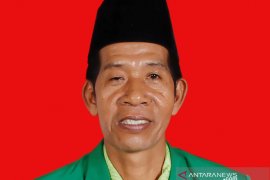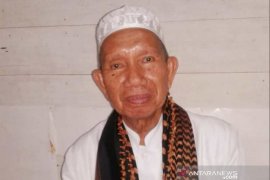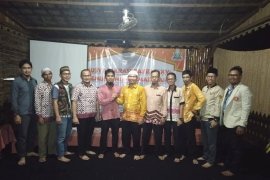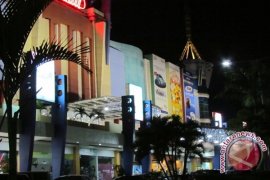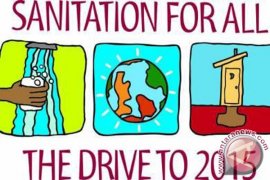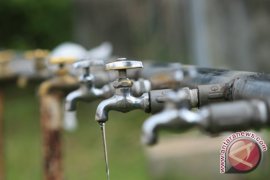Banjarmasin, S Kalimantan (ANTARA) - For citizens of Banjarmasin, Rahmatullah's figure may be familiar, because of his consistent work in striving for a clean and healthy river in Banjarmasin.
The Managing Director of the city government-owned wastewater treatment company PD Ipal, whose hobby is bicycle sports, is always trying to support the Banjarmasin City government program to make the river as front porch as a selling object of tourism.
Almost every day, he leads dozens of his men to work optimally to serve the community, while at the same time encouraging them as environmental motivators to make Banjarmasin a truly a city of Baiman (clean and comfortable).
"We want 170 rivers in Banjarmasin to be really clean because the river is a barometer for handling a city," said the Banjarmasin-born man in 1963.
The residents of Miai River, North Banjarmasin, admitted he doesn't mind to work for a company with a heavy duty, because they had to process domestic wastewater into clean water until the water released into the river did not pollute.
With minimal funds, because the company never received capital participation from the city government, he and his staff tried their best to provide good sanitation. While customers who are willing to treat their domestic wastewater into clean water only 5 percent of the population.
"Our society still does not fully understand wastewater treatment, even though in many countries people understand environmental health almost 100 percent are willing to process their wastewater into clean water," Rahmatullah, who is known as an environmental activist with the community, pointed out.
Even in developed countries, wastewater treatment is a necessity because they understand that bad sanitation is the source of various diseases, such as diarrhea, cholera, dysentery, even worse, the occurrence of stunting.
With poor sanitation the burden of living for the poor is even more difficult, because they have to go to various health facility, of course, not a few costs are incurred.
Therefore, good sanitation is a choice and it should be understood by the community and the government to make it happen not heavy and without complexity.




